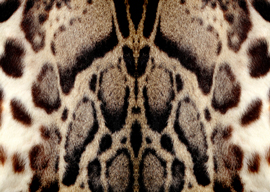
October 26, 2014

Source: Shutterstock
Life is a struggle, or at least a pendulum swing, between complacency and panic. No doubt most of us are more inclined by temperament to one than to the other, and it is a moot point as to which, when unjustified or inappropriate, does the more harm. Personally I am more inclined to complacency than to panic, perhaps because I find my own life satisfactory, grosso modo, and change is therefore more likely to harm me than to do me good. Besides, there is no happiness without complacency, and even the happy revolutionary is complacent in his own way, namely in that he is acting to bring about the best for humanity, all evidence to the contrary notwithstanding.
The correct appreciation of danger is a difficult art. Man is by nature paranoid”paranoia is a common psychological expression of many different physiological disturbances, suggesting that it is in some sense fundamental in the human psyche”and he, Man, tends to believe that the universe constantly focuses its attention on him. We all think that the universe reciprocates our gaze: because we are looking at it, it is looking at us. I catch myself thinking paranoid thoughts quite often before I consciously put them behind me.
For example, the other day I was traveling by train from a busy station, and the only”yes, the ONLY”train out of scores of trains scheduled that was delayed was the one that I proposed to travel on. Furthermore, this has happened to me more than once, so that they, whoever they are, must be deliberately trying to inconvenience me.
I soon realize that there is no they there. That this appears to happen to me often is an illusion caused by the fact that when a train is delayed that I am not proposing to catch, I scarcely notice it, and certainly do not remember it.
Or again, only last week I was driving to a town 120 miles away when I noticed that all the traffic hold-ups were in my direction: the traffic in the opposite direction flowed without friction, like oil through fingers. But on my return, it was exactly the other way round: again the hold-ups were in my direction only. They were at it again, obstructing and frustrating me at every turn.
As it happened, the town to which I had gone was poor and miserable enough to have a secondhand bookshop: it is only in such towns that such booksellers these days can afford the rent of a shop. And there I happened on a book whose introduction was such that I could not resist buying it:
It is not possible to state definitively why the members of the Human Leopard Society ate their victims. There was, however, one outstanding fact: all the principal offenders were men of mature age, past their prime; they were the ones who, so to speak, managed the concern, who arranged for victims, and who received the most coveted portions of the slaughtered bodies; and I formed the impression that when they devoured the human flesh the idea uppermost in their minds was that they were increasing their virile powers.
The title of the book was Human Leopards: An Account of the Trials of Human Leopards Before the Special Commission Court: With a Note on Sierra Leone, Past and Present, by K. J. Beatty of the Middle Temple, Barrister-at-Law for Some Years Resident in Sierra Leone. It was published in that great year for civilization, 1915, and this particular copy had once belonged to the library of the Society for the Propagation of the Gospel in Foreign Parts.
Reading on in the book, I could not help but notice that quite a few of the alleged victims were young, feeble-minded, and vulnerable relatives of senior members of the Human Leopard Society, which made me wonder whether the Human Leopard Society had not been a kind of eugenic organization in leopard-skin disguise, that is to say the means by which important men disposed of unproductive persons whose mouths they had otherwise to feed.